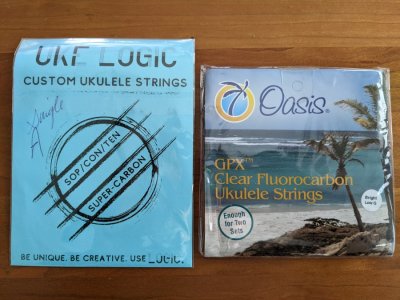RafterGirl
Well-known member
Two suggestions
1. Buy from a dealer who will do a good set-up on whatever uke you buy. TUS. Mim, Uke Republic are ones I've purchased from. Also watch the marketplace here on UU. Folks here will usually have a good set-up on ukuleles they are selling, and you can get a nice ukulele at a decent price.
2. Find a ukulele group to play with. It will expand your playing & enjoyment immensely. Uke folks are generally very friendly and willing to teach new players.
1. Buy from a dealer who will do a good set-up on whatever uke you buy. TUS. Mim, Uke Republic are ones I've purchased from. Also watch the marketplace here on UU. Folks here will usually have a good set-up on ukuleles they are selling, and you can get a nice ukulele at a decent price.
2. Find a ukulele group to play with. It will expand your playing & enjoyment immensely. Uke folks are generally very friendly and willing to teach new players.

